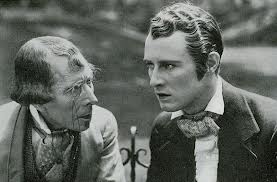1904-1997
Anthony Arnatt Bushell was born in Kent, England, UK. He was educated at Magdalen College, and later, Hertford College, Oxford. After Oxford, he went on to study formal training in stage acting at the Royal Academy of Dramatic Art in London. Bushell made his stage debut in 1924 in a production of Sardou's Diplomacy at the West End's Adelphi Theater. By 1927 and 1928 he was touring with high profile theatrical productions in the United States; and by the end of 1928 he was the talk of Broadway. That same year fellow British stage actor George Arliss saw him in a play; when Arliss was cast in a very early talkie Disraeli (1929) [sound by the Western Electric Apparatus], Arliss recommended Bushell for the role of Charles Deeford, which the studio accepted. Also in 1929, Bushell was part of the huge production of The Show Of Shows. He was featured in the "Henry VI" sequence. Thus his movie career began in the earliest era of sound in motion pictures. He would go on to be in films with likes of Douglas Fairbanks Jr., Myrna Loy, Edward G. Robinson and Erich von Stroheim. He served his country during World War II; commissioned into the Welsh Guards, where he served as commander in the Guards Armoured Division--tank squadron. After the war, he developed a close relationship with Sir Lawrence Olivier, and would go on to be an assistant director to him. By the early 1960's, he had grown tired of the business. The last full length film he made was the The Queen's Guards in 1961 and, he retired for good in 1964 after making his last acting appearance on the television series Drama 61-67. He served for a time as the director of the Monte Carlo Golf Club. Bushell passed away on 2 April 1997 at the age of 92 in Oxford, England, UK. The details of his burial are unknown
 |
| Bushell right with Arliss in Disraeli (1929) |
Leave Virtual Flowers at Find A Grave




















